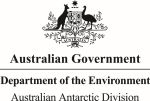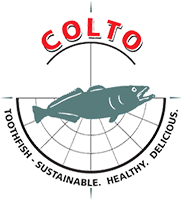Working group on Science Collaboration
– Terms of reference –
To raise awareness of the existing contribution made by COLTO Members to scientific research and to identify future science projects to which COLTO could make a high impact contribution.
Data collected on COLTO Members vessels contribute to a large number of scientific research programs. This research includes science conducted to support the sustainable management of toothfish fisheries including taking time away from commercial fishing to conduct research surveys. During commercial fishing, a wide range of data and research activities are undertaken, including the tagging and releasing of toothfish, and carrying scientific observers that collect a vast range of biological information on toothfish and bycatch species. Because of the remote areas that COLTO Member vessels operate, they also provide a unique platform to collect oceanographic, meteorological and acoustic data that is not directly related to fisheries management, but contributes to projects that deliver a greater understanding of the ecosystem in which fisheries take place.
The expected outcomes are:
- Providing briefing materials, in a range of media formats, on the existing scientific research conducted on COLTO vessels;
- Consultation with the science community to identify a set of priority science questions that data collected through COLTO could contribute; and
- Initial project scoping to develop a project for the routine collection of detailed oceanographic data during fishing operations.
The awareness raising aspects of (i.) will be an ongoing process integrated with COLTO’s overall media strategy. Consultation with the science community would be based around a web-based survey that would allow scientists to suggest potential data collection approaches which can then be evaluated by the WG. A project outline for (iii). can be found in Appendix 1.
Working Group Chair: Trond-Inge Kvernevik (trond@fiskevegn.no)
Working Group Members:
 |
 |
 |
Appendix 1
Antarctic Fisheries Oceanography Project (AFOP)
Collecting accurate oceanographic data is fundamental to understanding the present and future role of the Southern Ocean in global ocean processes. The resources required to collect such data means that expanding the ability to collect data beyond traditional research platforms may provide cost-effective alternatives. For example, the use of marine mammals as carriers of oceanographic data collection devices has provided advances in the understanding of fundamental processes such as Antarctic bottom water formation. The development of animal-borne devices that measure conductivity, temperature and depth has demonstrated that it is both feasible and practical to use relatively small and inexpensive devices to collect oceanographic data (see ‘Marine Mammals Exploring the Oceans Pole to Pole’ at www.meop.net). Although there is no ability to control where animals collect data from, they have provided data from a range of areas and times that are not typically regular research or logistics transects.
The aim of this project is to evaluate the use of deploying miniature CTD devices (conductivity, temperature and depth data loggers) on longline fishing gear in the demersal longline fisheries for toothfish in the Southern Ocean. Because there is no need to record the location of the device there would be no requirement for the use of satellite telemetry and so the cost of data acquisition would be relatively cheaper than for animal borne devices. The CTDs would be attached to the anchor weights of longlines and would record the CTD profile from the surface to the fishing depth (typically 800-1800m). As the ‘soak-time’ for gear in these fisheries is of the order of 24 hours this would also provide a potential to examine the variation in temperature and salinity (measured as conductivity) at a fixed depth over a prolonged time period.
Existing mechanisms that have been developed through the MEOP programme, application of the CCAMLR Rules for Data Access and Use, and the data management processes developed through SOOS (Southern Ocean Observing System, see www.soos.aq), provide a strong framework for the data management, quality assurance processing and delivery into the science community.
This project has the potential to provide high-quality oceanographic data from locations and at times when there are few other research platforms available. For example, warming of circumpolar deepwater has been identified as a key factor in the collapse of some of the very large ice-shelve in the Antarctic (See ScienceMag.org), and oceanographic data collected from fishing vessel could provide crucial data that helps to understand why and even when such collapses might occur. It could provide an opportunity for COLTO to contribute to globally important scientific research that extends far beyond fisheries science.
The project itself would have three main elements:
- Gear Research and Development – to produce highly accurate, relatively inexpensive, CTD recorders that could be easily fitted to fishing gear. The devices should be able to send data to a logger on the vessel when the gear is recovered so there is no additional workload for people on the vessel.
- Data Collection Plan – to produce a simple set of instructions for how COLTO Members can deploy the devices and collect meaningful data.
- Delivery of data to the science community: This should take advantage of the existing framework for confidential data management through CCAMLR, the data processing and quality assurance routines developed in MEOP, and the delivery of science products through SOOS.
